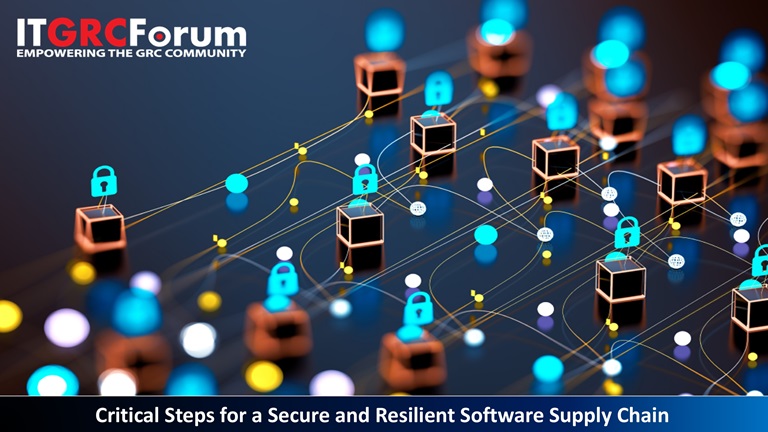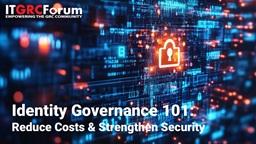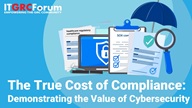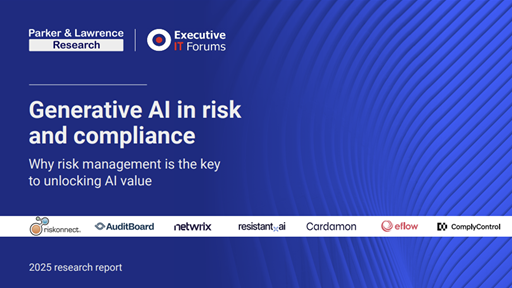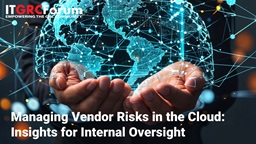Webinars:
Critical Steps for a Secure and Resilient Software Supply Chain
Recorded: April 24th | 2025 Watch
Securing the software supply chain has become a mission-critical priority for organizations across industries. With increasing cyber threats targeting risks and threats in software development and delivery, businesses must adopt proactive strategies to safeguard their operations, ensure compliance, and maintain customer trust. Join us for an insightful webinar featuring Janet Worthington, a renowned Forrester analyst with extensive expertise in cybersecurity and software supply chain resilience.
Identity Governance 101: Reduce Costs & Strengthen Security
Recorded: May 14th | 2025 Watch
Managing identity governance effectively is a critical challenge for organizations balancing cybersecurity, regulatory, and operational needs with budget constraints. Traditional identity governance and administration (IGA) projects often face high costs, lengthy deployment timelines, and complex integrations, making it difficult to achieve security and compliance objectives efficiently.
How to Stop Rubber-Stamping User Access Reviews within Regulated Applications
Recorded: July 10th | 2025 Watch
Most User Access Reviews (UARs), especially in SOX-scope applications and other regulated environments like SAP, Oracle, and Workday, are performed to meet compliance requirements — not because they drive meaningful security outcomes. They’re repetitive, rubber-stamped, and void of risk context.
Managing Active Directory Like It’s 2003 Leaves You Exposed in 2025
Recorded: October 15th | 2025 Attend
Active Directory (AD), Windows Server, and the threat landscape have all evolved. Has your approach kept pace?
Incorporating Al into Your GRC Program for Business Agility
Recorded: June 26th | 2025 Watch
Managing governance, risk, and compliance (GRC) in a fast-paced world can feel like chasing a moving target, and AI might just be the edge you need to keep up.
Coordinating TPRM Efforts: A Multi-Departmental Approach
Recorded: August 14th | 2025 Watch
As third-party risk management (TPRM) programs mature, successful organizations are increasingly taking a cross-functional approach—aligning stakeholders from procurement, IT, legal, compliance, and risk to build a unified strategy. This CPE-accredited webinar brings together subject matter experts from ProcessUnity and OneTrust to explore best practices for breaking down departmental silos and fostering collaborative governance.
AgenticAI-Driven TPRM: Innovation, Risks, and Opportunities
Recorded: October 22 | 2025 Watch
As third-party risk management (TPRM) becomes more complex, AgenticAI is emerging as a powerful force reshaping how organizations identify, assess, and manage vendor risks. This session will examine the innovations AgenticAI brings to TPRM, the risks and challenges it introduces, and the opportunities it creates for building stronger, more resilient programs.
The True Cost of Compliance: Demonstrating the Value of Cybersecurity
Recorded: June 18th | 2025 Watch
Cybersecurity compliance often feels like an expensive obligation, draining time, budgets, and resources - but what if it could be a catalyst for value instead?
Zero Trust, Full Control: Tackling the Modern Identity Crisis in Data Security
Recorded: September 10th | 2025 Watch
In today’s increasingly decentralized IT environments, organizations are facing a modern identity crisis—one where traditional perimeter-based security is no longer effective, and identity has become the new attack surface. As cloud adoption, remote work, and third-party access proliferate, the risk of overprivileged users, identity sprawl, and unauthorized access to sensitive data continues to grow.
Generative AI in Risk and Compliance: Insights from the 2025 Industry Report
Recorded: November 12 | 2025 Watch
Despite billions invested, 95% of organizations see limited returns from generative AI. Our new research shows why: without elite risk management, firms cannot deploy this technology confidently or take the strategic risks that unlock true business value.
Managing Vendor Risks in the Cloud: Insights for Internal Oversight
Recorded: June 4th | 2025 Watch
As cloud adoption accelerates, managing vendor risks is more crucial than ever. Join our panel discussion webinar with Paul McKay, Principal Analyst at Forrester, and subject matter experts as we explore strategies for overseeing vendor relationships in the cloud. This session will provide practical guidance and exclusive research to strengthen your approach.
The Million Dollar Blindspot - Business Privileged Access Management for Non-Routine Transactions
Recorded: September 25th | 2025 Watch
The Business Agility Paradox
In today's volatile business environment, organizations face an inherent tension between operational agility and regulatory compliance. Standard business processes are governed by established controls, approval workflows, and business policies.
Generative AI Security: Preventing AI from Becoming a Data Breach Multiplier
Recorded: November 5 | 2025 Watch
Generative AI tools are revolutionizing enterprise productivity, but they also introduce a new set of risks that IT GRC leaders must address head-on. Misclassified data, over-permissioned access, and uncontrolled sharing can cause AI systems to surface sensitive information to the wrong people. Without the right guardrails, the benefits of AI can quickly be overshadowed by data exposure, compliance violations, and governance gaps.

